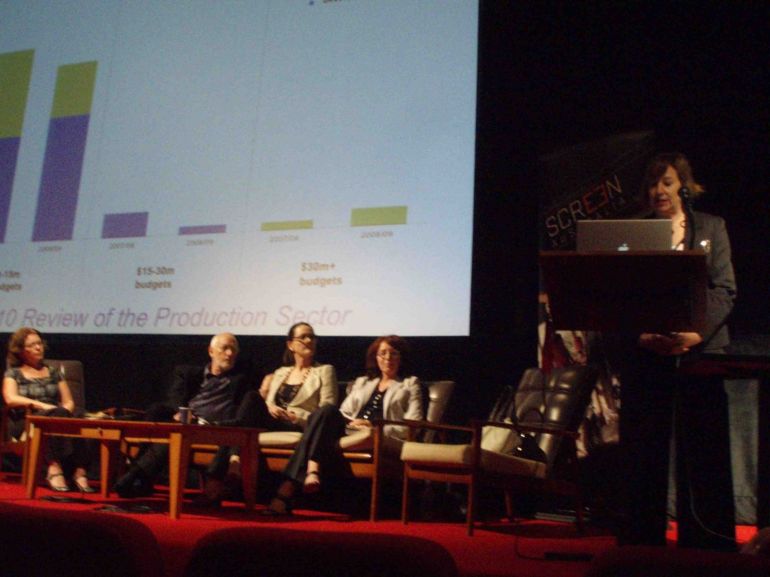By Brendan Swift
The documentary industry has rejected a suggestion by Screen Australia to double the current Producer Offset expenditure threshold while raising the agency’s direct production funding.
The idea – raised as part of a series of Screen Australia roadshows ahead of a broader government review – was aimed at providing some relief for documentary makers inundated by bureaucracy.
Most documentaries struggle to meet the current $250,000 per hour expenditure threshold. It has led to high administrative costs in return for a relatively low 20 per cent rebate.
“The threshold is probably not a live issue,” Screen Australia chief executive Ruth Harley told a forum of more than 200 people today at Sydney’s Chauvel Cinema.
Ruth Harley addresses the crowd at the Chauvel Cinema in Sydney
“Having listened to [roadshows in] Brisbane, Adelaide, Tasmania and Melbourne, I have the feeling that most of the documentary community will not support the idea of raising the threshold even though it would be administratively simpler.
“Most people's view is that they can work the Offset and their equity in it is clear and, when all is said and done, it is a professional arrangement.”
Screen Australia had also suggested scrapping the threshold altogether.
The first Screen Australia roadshow was held in Adelaide on February 25. The Labor Government is expected to release the terms of the industry review within the next week.
Documentary production peaked in Australia in 2007-08 when a total of 509 hours was produced with total production budgets of $138.6 million.
Harley said the Producer Offset has delivered an extra $30 million to the documentary sector after including both final and provisional Producer Offset certificates.
About 95 per cent of provisional documentary approvals are completed and released compared to about 40 per cent of feature films.
From March 1, Screen Australia documentary funding of less than $200,001 has been provided as a grant, rather than as a recoupable investment.


